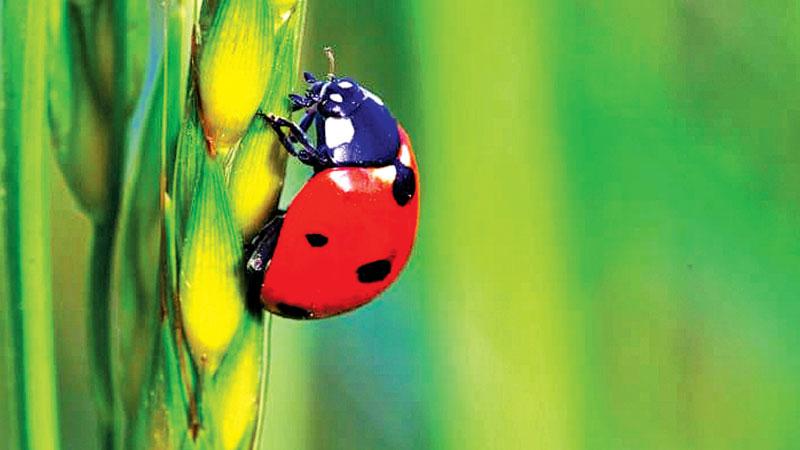
Remember those experiments where bus stations and the like would play classical music in the hope it would drive away undesirables? Well, new research finds blaring rock music has the opposite effect—at least in the insect world.
A group of biologists report that, in an experiment, lady beetles exposed to loud rock music ate fewer aphids than their counterparts who dined either in silence, or to the softer sounds of country crooners. The result was a population explosion of the pests, which resulted in significantly smaller soybean plants.
“We reject the AC/DC hypothesis that ‘Rock ‘n’ Roll Ain’t Noise Pollution,’” writes a Mississippi State University research team led by biologist Brandon Barton. “Our study found that rock music altered insect behavior and generated cascading, indirect effects.”
In the journal Ecology and Evolution, the researchers describe a two-part experiment that utilized lady beetles, one of the most prominent predators of agricultural pests. They placed “a single lady beetle larvae and a known number of aphids in a Petri dish.”
One dish was left sonically undisturbed; one was treated to “a 17-track mix of industrial and urban sounds”; and the others were exposed to continuous loud music. Genres varied: The soundtracks included AC/DC’s Back in Black, a compilation of popular rock music, and a sampler of classic country songs.
The researchers report beetles who were serenaded by Willie Nelson and Waylon Jennings ate just as many aphids as those who dined in silence. But exposure to the rock music greatly depressed their appetites. Listening to AC/DC reduced by nearly half the number of aphids they consumed over a 16-to 18-hour period.
In addition, the biologists observed the growth of a group of soybean plants that had been infested with aphids (as well as lady beetles). Half were left in silence, while the others were exposed to Back in Black.
After two weeks, the population of the pests was more than 40 times larger in the plants that had been exposed to the hard-rock soundtrack. As a result, the plants were approximately 25 percent smaller, showing that the lady beetles’ apparent aversion to AC/DC had real-world consequences.
As that shows, the results of this seemingly frivolous experiment have serious implications. They provide evidence that “the effects of noise pollution are not limited to vertebrates, but can affect insects, too”—and that has implications further along the food chain.
- psmag.com
